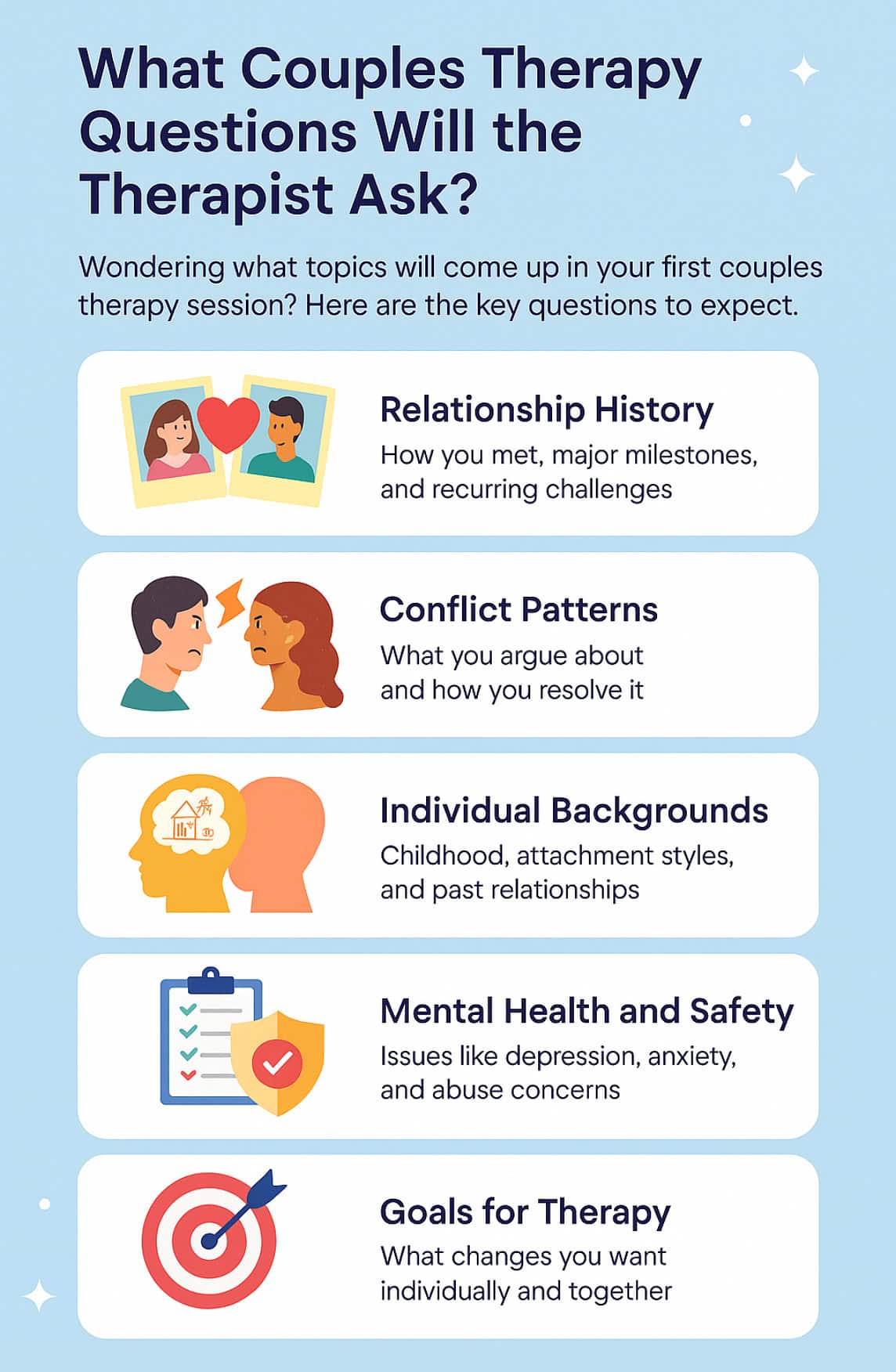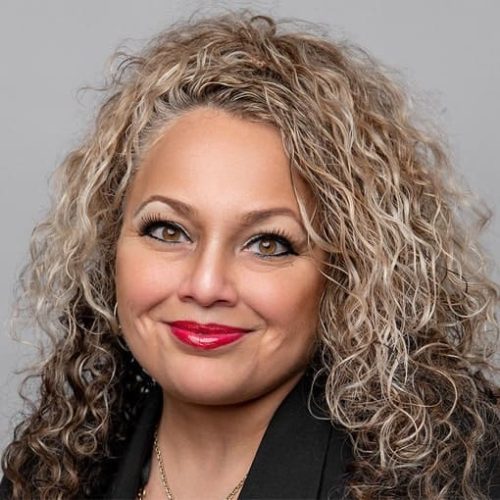
Key Takeaways for Couples Therapy Questions.
- Conflict patterns: Therapists explore what you argue about, how you argue, and how (or if) things get resolved.
- Individual backgrounds: Expect questions about your childhood, attachment styles, and past relationships.
- Mental health and safety: Therapists assess for depression, anxiety, trauma, and any abuse or addiction concerns.
- Goals for therapy: You’ll be asked what you hope will change in your relationship, individually and together.
🎯 Being honest in your answers helps your therapist create a treatment plan that actually works for both of you.
👉 Ready to take the next step? learn more about couples counselling at AERCS and book your free 15-minute phone consultation.

At your very first session, the therapist will ask a series of couples therapy questions about your relationship history, recurring conflict patterns, individual backgrounds, and shared goals so they can create a treatment plan that fits you both. Honest, detailed answers help the counsellor quickly pinpoint strengths, pain points, and any safety issues.
Relationship History: Setting the Scene.
Typical Questions.
- How did you meet and what drew you together?
- What memorable highs and lows have shaped your story?
- When did you first notice current challenges?
Why It Matters.
A clear timeline helps the therapist see which turning points, moving cities, new baby, job loss, may have amplified stress.
Conflict Patterns: Identifying Triggers.
| Sample Question | Purpose |
|---|---|
| “What topics spark most arguments?” | Pinpoints high-conflict areas like money or in-laws |
| “How do disagreements usually end?” | Reveals whether stonewalling, criticism, or repair attempts occur |
| “What happens after a fight?” | Assesses recovery skills and emotional safety |
Key takeaway: Recognising repetitive loops allows targeted skill building.
Individual Backgrounds: Personal Context.
Areas Explored.
- Family of origin: How did your parents handle conflict?
- Mental health: Any history of anxiety, depression, or trauma?
- Attachment style: Do you lean anxious, avoidant, or secure?
Personal histories explain current reactions and guide appropriate interventions.
Safety and Well-Being Checks.
Therapists in Orangeville, Toronto, and the GTA routinely ask about:
- Emotional or physical abuse
- Substance use or addiction
- Suicidal thoughts or self-harm
These couples therapy questions ensure sessions remain a safe space. If risk is present, the therapist may recommend individual support before joint work continues.
Goals and Hopes: Mapping Success.
Guiding Questions.
- What would a healthier relationship look like in six months?
- How will you know therapy is working?
- Which habits do you want to start or stop?
Key takeaway: Shared, measurable goals let you and your therapist track progress and celebrate wins.
How to Prepare for Your Intake Session.
- Reflect Individually: Jot key memories and current pain points.
- Discuss Together: Compare notes calmly to align on major concerns.
- Bring Practical Info: Appointment availability, insurance coverage, and preferred session format (virtual or in-office).
Preparation boosts confidence and speeds assessment.
Knowledge Removes Anxiety.
Knowing the core couples therapy questions, relationship history, conflict patterns, individual background, safety, and goals, helps you walk into the first session prepared and honest. Ready to take the next step toward healthier communication and connection? Visit our Couples Counselling page to learn more or book a free 15-minute phone consultation today.
What couples therapy questions explore our relationship history?
Therapists ask when you met, key milestones, and major stressors so they can frame current issues within your shared story.
Why do couples therapy questions focus on conflict patterns?
These questions expose triggers and communication habits, allowing the counsellor to teach targeted de-escalation skills.
How personal are the couples therapy questions about individual backgrounds?
You may discuss family upbringing, mental health, and attachment style, all of which affect how you relate to your partner.
Do couples therapy questions include safety checks?
Yes, counsellors ask about emotional or physical abuse and substance use to ensure sessions stay safe and effective.
How do goal-setting couples therapy questions shape treatment?
By defining what success looks like, less fighting, more intimacy, the therapist tailors interventions and measures progress.

